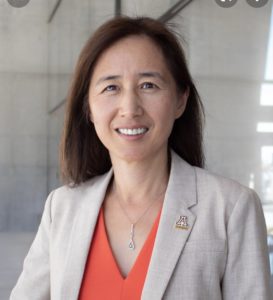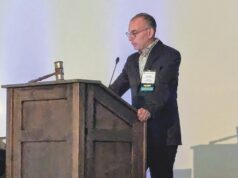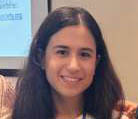
There was something of a different pulse to some of the matters around this year’s Western Vascular Society (WVS) annual meeting, recalls Wei Zhou, MD, a regular attendee over the last decade—particularly during a session dedicated to issues related to diversity, equity and inclusion (DEI).
That might’ve had something to do with the presence of a contingent of voluble, young faculty. Crucially, this emerging generation is one that contains more women, greater diversity and a louder voice, Zhou muses. It is a new tenor that excites her—for the future it might portend, for the trails it might set for others. “I think the society wants to make a change,” says Zhou. “It’s time to be inclusive, it’s time to embrace new ideas.”
Zhou, an immigrant to the United States after high school, knows what extra obstacles can lie in the way of people with demographic characteristics such as hers. She knows what it has taken to reach her latest career milestone: During the recent WVS meeting in Jackson Hole, Wyoming, she was unveiled as the society’s president-elect. As just the second woman to enter the presidential line, as well as the second Asian, she speaks of an element of surprise at the election, as much due to her relative youth as the ascension itself. “I’m still trying to digest the news,” Zhou tells Vascular Specialist in an interview shortly before her first WVS Executive Council meeting. “But there are more early-career vascular surgeons who are women, who are diverse, and I have really embraced the change. As a society, we need to embrace change. I think, as a leader, you really need to embrace what’s going on with the pipeline.”
Zhou’s own career has followed a particular trajectory. Since vascular fellowship, she has remained committed to academia, considering herself primarily a clinician-scientist.
“I enjoy the stimulating part of the science—though I’m a busy clinician I still enjoy the science part,” she says. “I have been lucky enough to have grant fundings from the VA [Veterans Affairs], NIH [National Institutes of Health] and the American Heart Association [AHA], from the American College of Surgeons [ACS] over the years. I still have a research lab—stood-over-the-benchtop research.” Meanwhile, Zhou’s clinical research interests have evolved. While at Stanford, where she operated for 10 years, she had a particular interest in neurocognition, and how carotid disease and carotid intervention—particularly micro-embolization—affect cognitive function.
Now based in Arizona, where she serves as chief of the division of vascular and endovascular surgery at University of Arizona College of Medicine-Tucson, her role has altered. There, part of her attention has turned to bringing together vascular surgery and podiatry, focusing on limb salvage, which she says represents “a huge” part of her group’s practice. “I embrace my podiatry colleagues and embrace the collaboration between podiatry and vascular,” Zhou explains. “That has continued to develop the program, and I think that’s important because they’re both integral equally to our practice. Along with that, there’s lots of work, research and clinical questions that we can ask to improve our care for patients with diabetes and diabetic foot ulcers, and for limb salvage in the southwest.”
In that vein, different types of vascular practice also merit consideration in the crucible of diversity, Zhou continues. “We’re not just an academic society; we’re a society that encompasses all types of vascular surgeons in the Western region. People in private practice, people in large group practice, and academia. We also need to embrace our young early-career faculty and students who are lots more diverse. Outreach is definitely on my agenda.” That’s a vision she shares with current WVS President Vincent Rowe, MD, who took over from Michael Conte, MD, in Jackson Hole.
Zhou points to a survey conducted by the society’s new DEI committee. It showed that 30% of the membership who responded had plans to retire. “That raises a pipeline issue for our society,” she says.
The more vocal, up-and-coming generation were particularly impressive during a DEI committee breakout session at the meeting, Zhou points out. “I’m considered more of a mid-career senior faculty surgeon, so in my role I recognize the diversity, and I want to change but not only are [the younger faculty] diverse— their voices seem louder. Not only do they recognize the need for change, but they definitely have a desire to make the change happen.
“I was actually inspired by our early-career faculty members, especially women faculty and women members in our society. They’re extremely accomplished and very vocal. They inspire me to be more vocal regarding this aspect of our society.”
When serving on the WVS program committee, Zhou describes how the group would organize a diversity network session where such issues would be raised and discussed.
“That was it,” she recalls. There was industry interest and support, but the mode of the session was not as well received as that which emerged at the most recent meeting, Zhou adds.
“This year it was a different pulse,” Zhou explains. “The DEI committee was formed this year and the new young surgeon committee was formed this year, and lots of our young faculty members are women. They are not just realizing the need for change, they demand change. Not only from the society but also from industry.”











